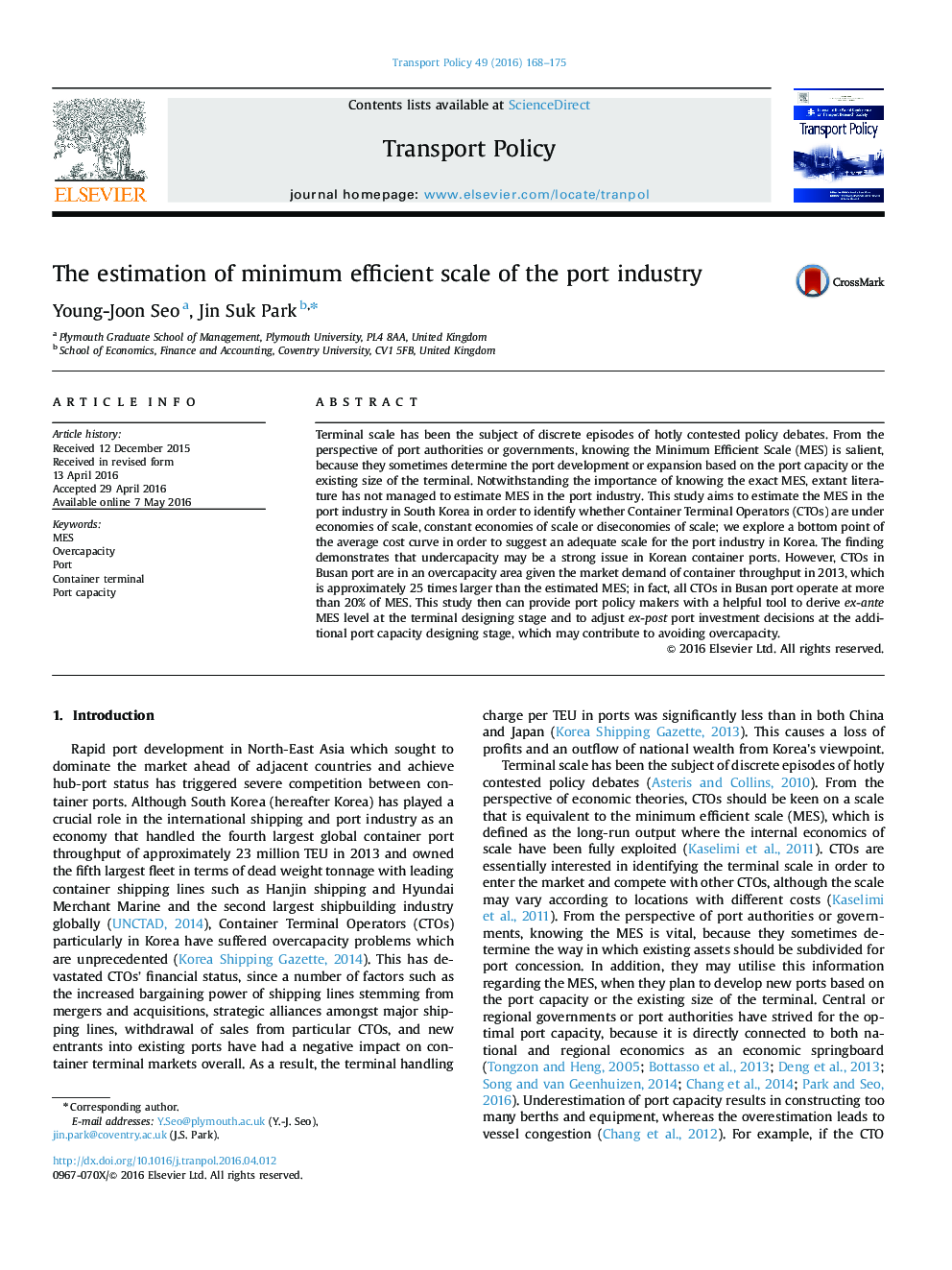| کد مقاله | کد نشریه | سال انتشار | مقاله انگلیسی | نسخه تمام متن |
|---|---|---|---|---|
| 1064783 | 1485828 | 2016 | 8 صفحه PDF | دانلود رایگان |
• The Minimum Efficient Scale (MES) of container port operators is empirically estimated.
• In general, undercapacity is an issue in South Korean container ports.
• However, where intra-port competition is strong, e.g. Busan, overcapacity is a severe issue.
• The market demand of container throughput of Busan port in 2013 is approximately 25 times larger than the estimated MES.
Terminal scale has been the subject of discrete episodes of hotly contested policy debates. From the perspective of port authorities or governments, knowing the Minimum Efficient Scale (MES) is salient, because they sometimes determine the port development or expansion based on the port capacity or the existing size of the terminal. Notwithstanding the importance of knowing the exact MES, extant literature has not managed to estimate MES in the port industry. This study aims to estimate the MES in the port industry in South Korea in order to identify whether Container Terminal Operators (CTOs) are under economies of scale, constant economies of scale or diseconomies of scale; we explore a bottom point of the average cost curve in order to suggest an adequate scale for the port industry in Korea. The finding demonstrates that undercapacity may be a strong issue in Korean container ports. However, CTOs in Busan port are in an overcapacity area given the market demand of container throughput in 2013, which is approximately 25 times larger than the estimated MES; in fact, all CTOs in Busan port operate at more than 20% of MES. This study then can provide port policy makers with a helpful tool to derive ex-ante MES level at the terminal designing stage and to adjust ex-post port investment decisions at the additional port capacity designing stage, which may contribute to avoiding overcapacity.
Journal: Transport Policy - Volume 49, July 2016, Pages 168–175
